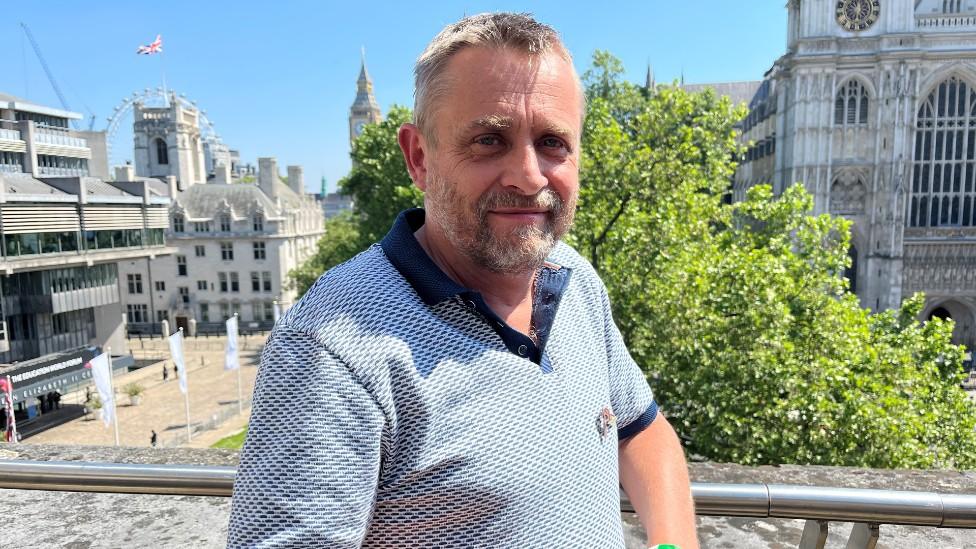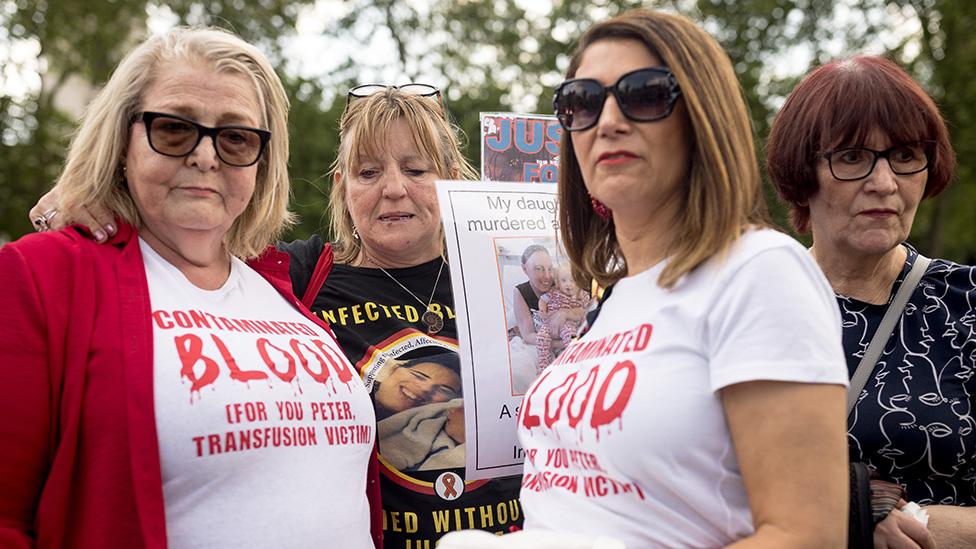Infected blood victim wants compensation 'clarity'
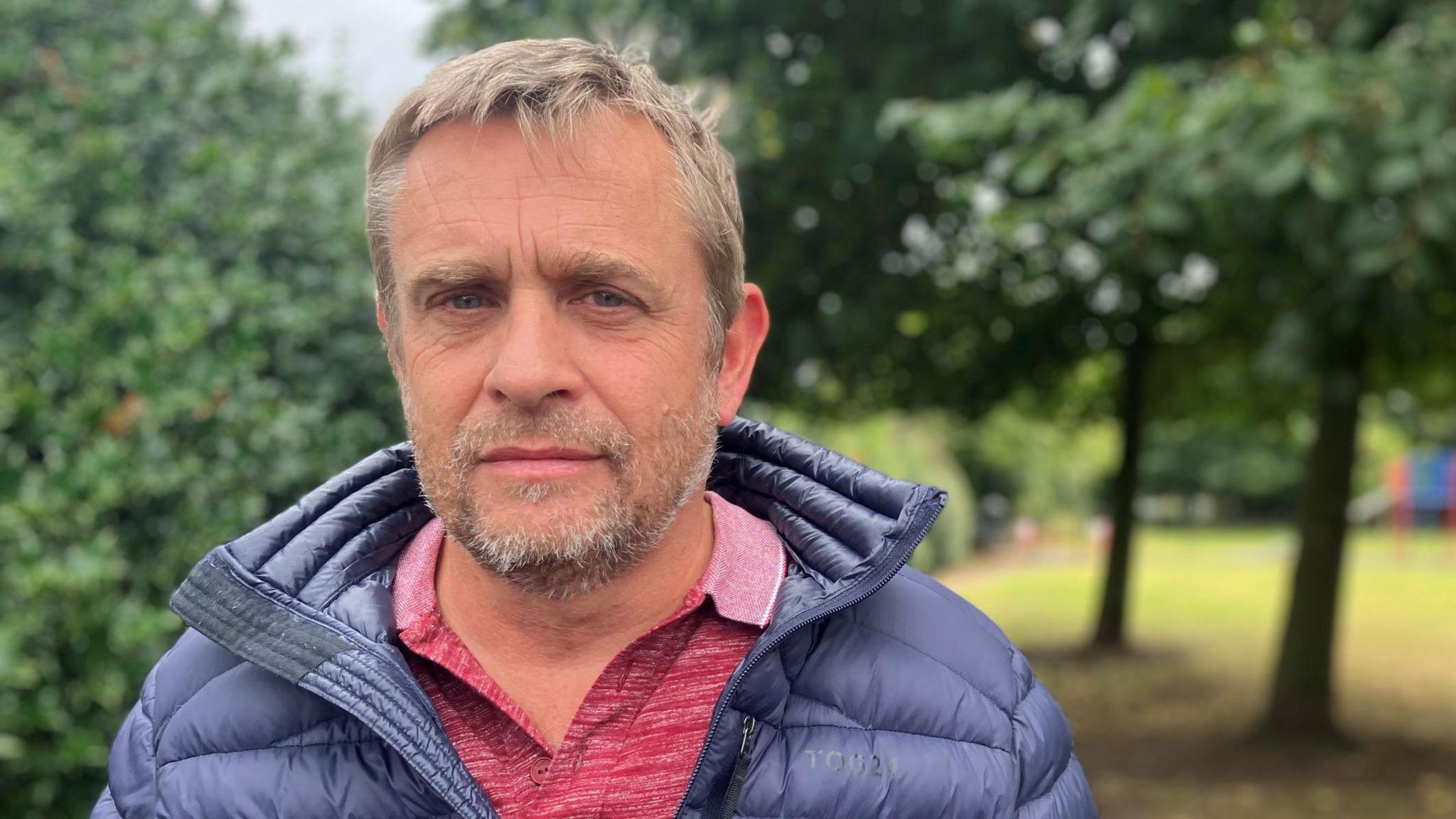
Mick Mason was diagnosed with HIV aged 18
- Published
A victim of the infected blood scandal has called for more clarity after the government announced plans to make the first compensation payments by the end of the year.
Mick Mason is among the 30,000 people in the UK infected by contaminated blood products in the 1970s and 80s.
The government has confirmed it will push ahead with compensation payments for people like Mr Mason.
But Mr Mason, 57, from Coalville, Leicestershire, said he needs reassurance over compensation payments before being able to "move forwards".
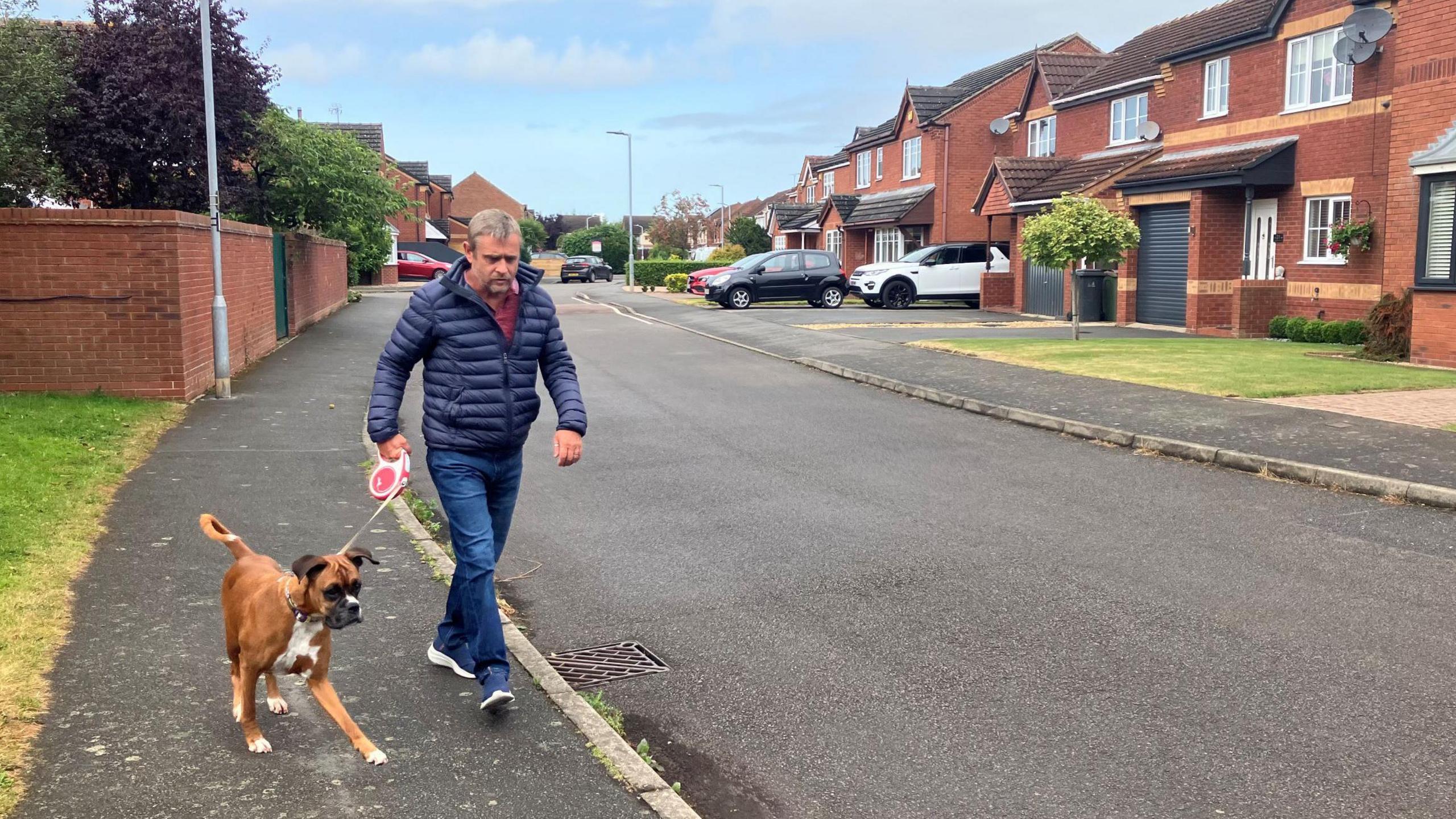
Mick Mason still takes daily medication for HIV and hepatitis B
Mr Mason was told he only had six months to live when he was diagnosed with HIV aged 18.
He was given infected Factor VIII, a clotting agent used to treat people with haemophilia and other similar conditions.
He said: "I think they just need to give reassurance and clarity around what the compensation is going to look like - what are people going to get and when are they going to get it.
"And then they can start to potentially move forward or plan what's going to happen in the future."
A public inquiry looking into the scandal described the scale as "horrifying" and accused doctors, the government and NHS of repeatedly failing patients.
Nearly 3,000 of those infected have since died.
Last week, the government confirmed that initial compensation payments would start being made by the end of the year.
The total cost of the scheme is expected to run into billions of pounds, with some patients set to receive more than £2m.
Mr Mason added: "We've had the apology, which was great, and we had the inquiry, which showed everybody exactly what did happen.
"But it's not going to take away the last 40 years of pain that me and my family have gone through.
"I don't think it will ever be over."
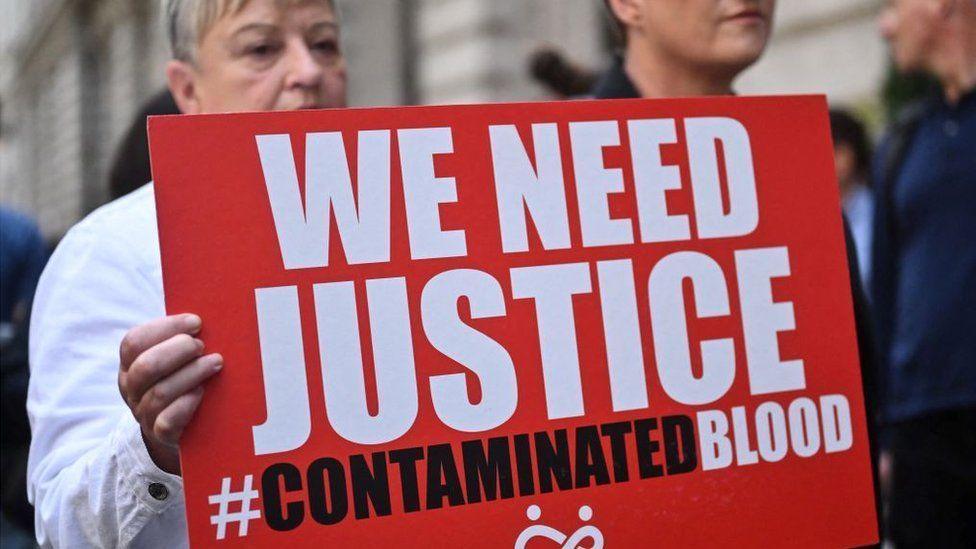
Victims of the infected blood scandal and their families have campaigned for compensation from the government
Mr Mason said he had felt "numb" after he received his diagnoses through the post.
He had suffered from serious haemophilia and had been treated with infected Factor VIII, a treatment which was created by pooling the blood plasma of tens of thousands of donors.
"I couldn't tell anybody - I couldn't even tell my friends," he said.
"It took me 18 months to tell my father and that was only because I was in hospital, when I was really ill, and I thought I wasn't going to come out.
"It was a hard time for many, many, many years."
Mr Mason has taken medication for the infection, as well as hepatitis B, ever since, but said his illness had made his life "very hard".
"I didn't have the career I wanted," he said. "I had this idea of what I was going to do - that was taken away from me.
"We have known that the medical professionals and the government and politicians knew the blood was infected, but they continued to use it."
'Wider cultural changes' needed
After announcing the government's compensation plan, Cabinet Office minister, Nick Thomas-Symonds, said: "This is an important milestone for victims and campaigners who have waited too long for justice.
"We’re going to do everything possible to deliver compensation quickly.
“We know no amount of compensation can fully address the damage to people who suffered as a result of this scandal.
"This is why alongside the compensation, we must drive forward the wider cultural changes to make sure nothing like this ever happens again."
Follow BBC Leicester on Facebook, external, on X, external, or on Instagram, external. Send your story ideas to eastmidsnews@bbc.co.uk, external or via WhatsApp, external on 0808 100 2210.
Related topics
Related Internet Links
- Published16 August 2024
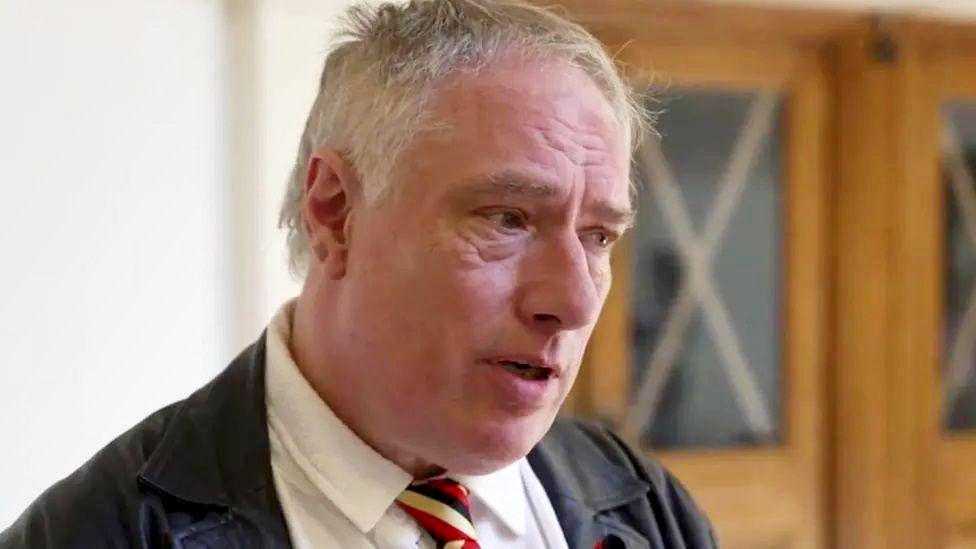
- Published7 August 2024
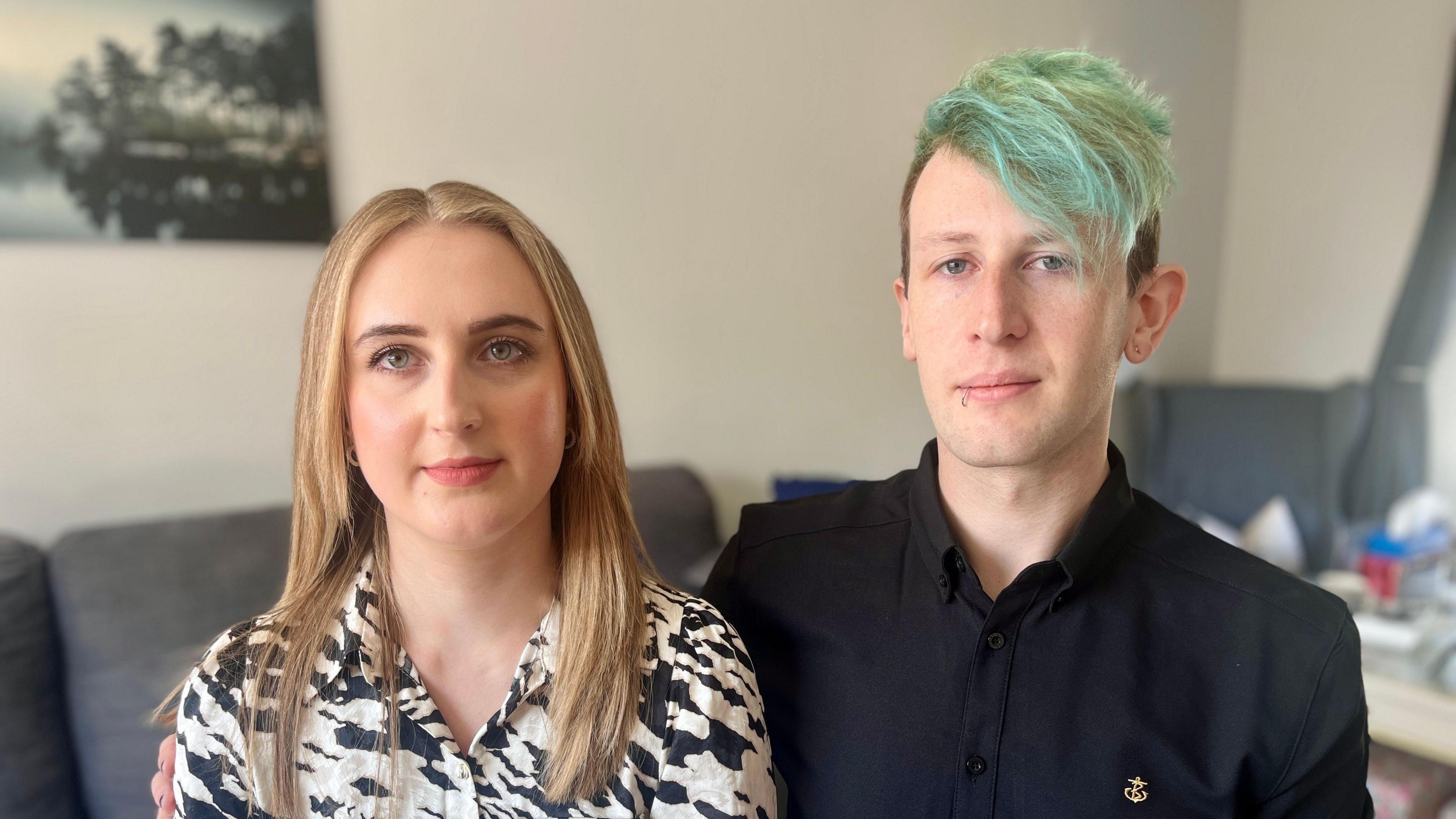
- Published20 May 2024
